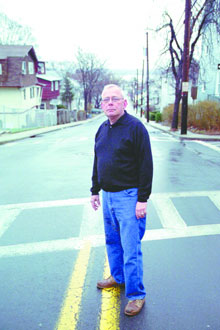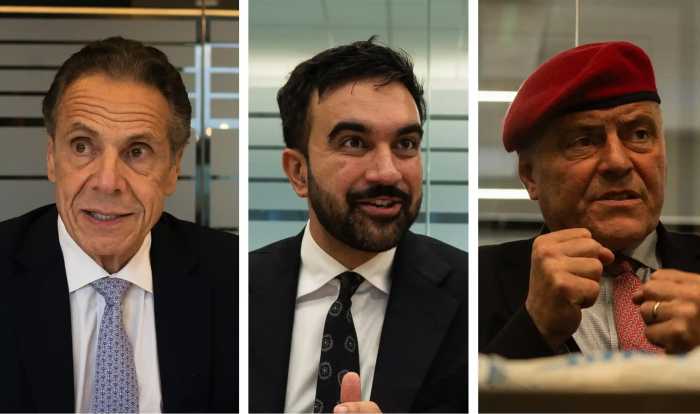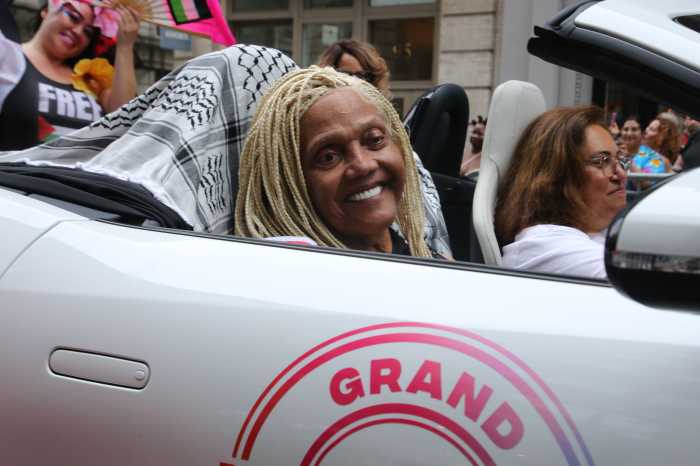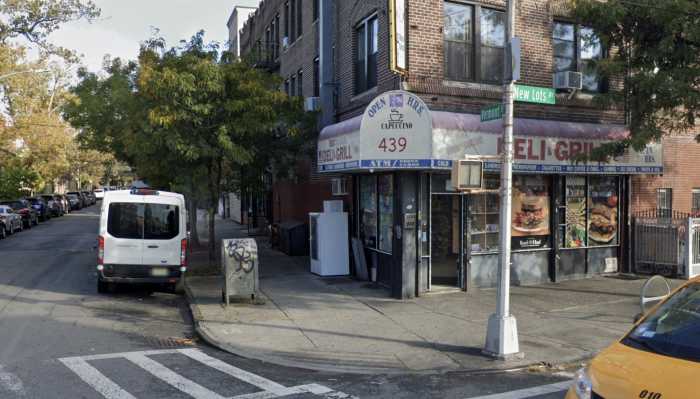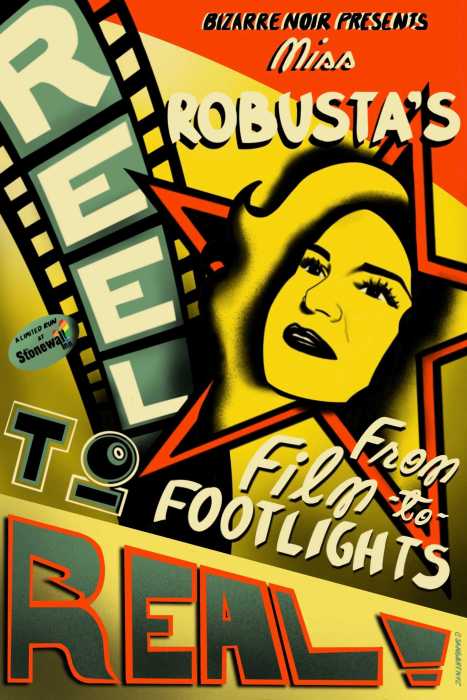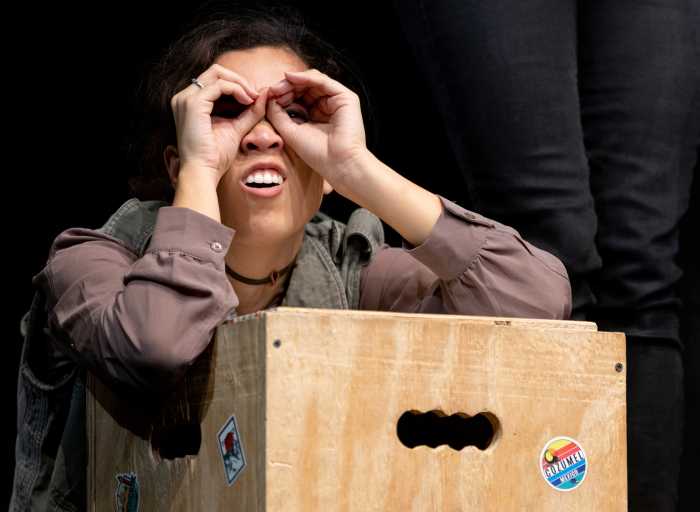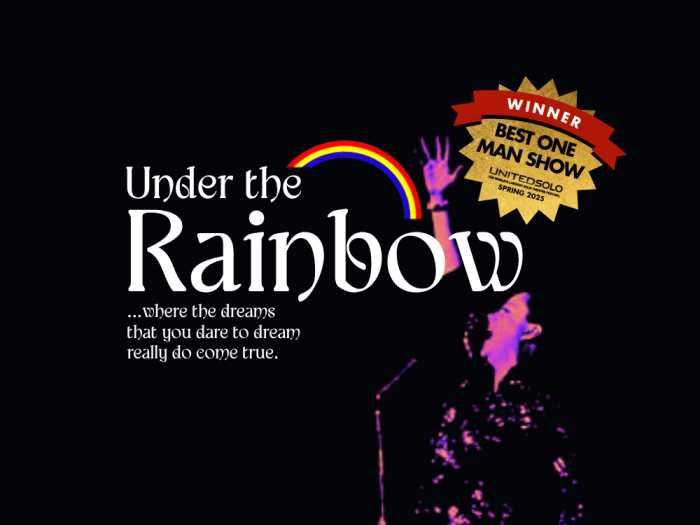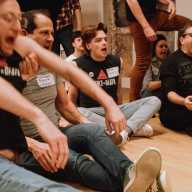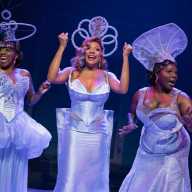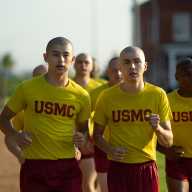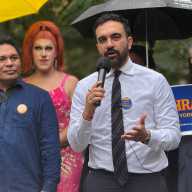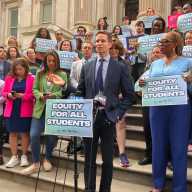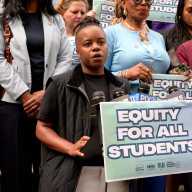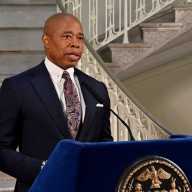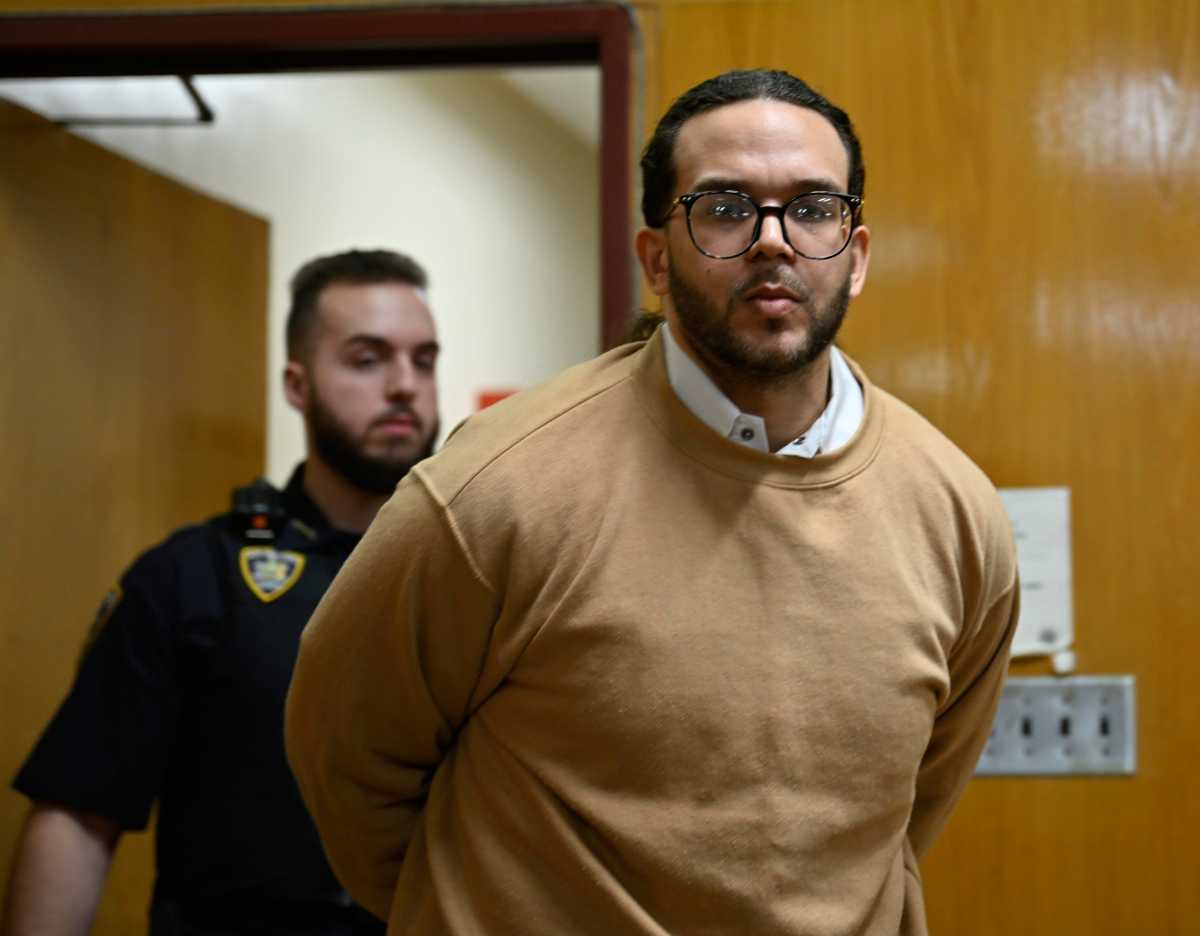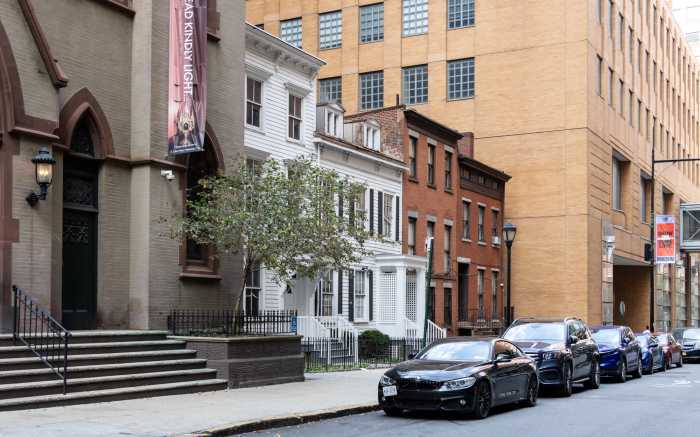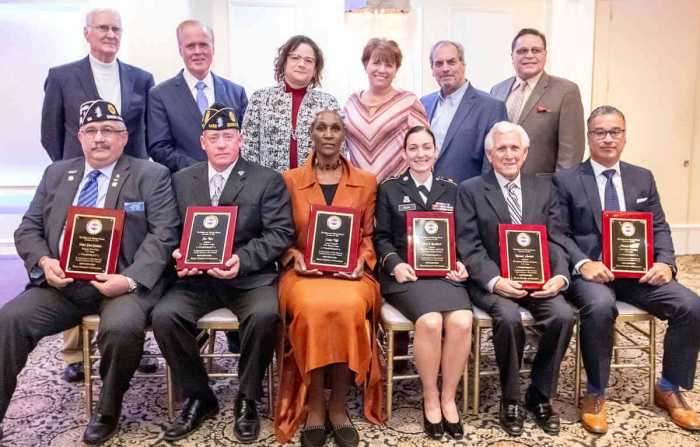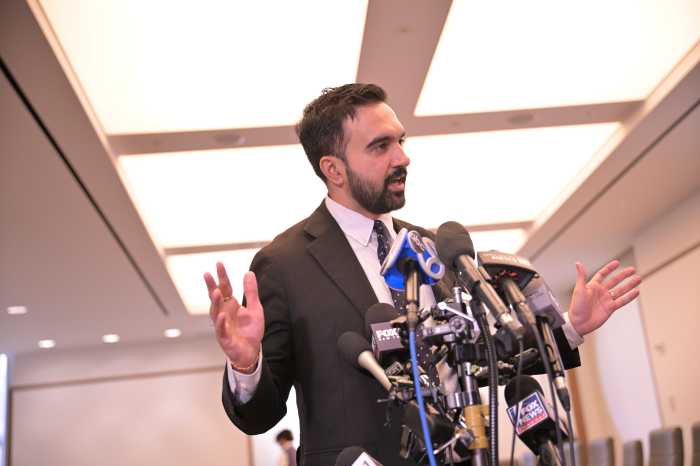John Shields drawn to same-sex marriage activism by a straight peer
On a quiet evening at home in December 2003, however, his partner, Bob Streams, 32, raised the issue in a personal way.
“We were watching some sappy, romantic chick flick,” Streams recalled, “and I started boo-hooing like I do.”
He looked at Shields and said, “You know, if I were ever going to marry anyone, I would want it to be you. If it’s ever legal, would you want to marry me?”
“Yeah, I guess,” Shields replied flatly.
Unsatisfied, Streams got on one knee and took Shields’ hand. “I really want to know – will you marry me?” he said. “I’m sure it’ll be legal someday, and when it is, I’d like for us to get married.”
“All right,” Shields said, with only slightly more enthusiasm.
But that was before Pres. George W. Bush proposed a constitutional amendment limiting marriage to opposite-sex couples. Before Mayor Jason West of New Paltz in Ulster County solemnized 25 marriages at the end of February, and met with Shields and Streams the following week. Before the state’s attorney general, Eliot Spitzer, issued an opinion that many felt begged for a test case.
And, Shields is quick to point out, before Streams had actually left Cape Cod, where they met a year ago, and moved to Nyack.
Today, their situation is different––and so is the entire legal landscape surrounding gay marriage.
“[Bob] moved to New York, he has his voter registration card, and now he’s suing the state,” Shields said with a smile. “He demonstrated that he wanted to be together. Now there’s the house and the dog and the lawsuit.”
They both agree that their meeting with West on March 4 is what convinced them to jump into the fray. Streams said he took Shields aside at one point and said, “Do you realize this is a heterosexual young man who is willing to go to jail because he’s fighting for our rights? I think we need to lend a hand here.”
To which Shields replied, “OK—as long as you know we’re in this together.”
Shields’ first announcement, that he would also solemnize marriages as West had done, unleashed a stampede of reporters. When he changed his strategy, opting to challenge the law as a plaintiff rather than a defendant, the media attention died down somewhat, even though Shields said he fully supported West’s actions.
In a 50-page brief filed on March 12 against Orangetown Town Clerk Charlotte Madigan and the State of New York, Shields, Streams, and nine other same-sex couples asked the state Supreme Court to direct Madigan to issue them marriage licenses. The case is expected to wend its way through the courts over the next year or two, according to Norman Siegel, former executive director of the New York Civil Liberties Union and one of four attorneys representing the couples.
“It’s a courageous position he’s taking,” Siegel said.
Unlike many politicians, Shields is “not moved by popular sentiment; he’s moved by what he thinks the right thing to do is,” Siegel said, adding “That’s a special quality that we don’t see very often, especially in elected officials.”
Nyack is an eclectic Hudson River community on the west end of the Tappan Zee Bridge that some have termed the Soho of the Suburbs. Once a thriving industrial center and working class community, the village fell into decline in the 1960s. But in the last 20 years an influx of writers, artists, actors, and upscale businesses has reinvigorated the area.
Now, the village’s 6,700-plus residents span a wide range of races, pursuits and incomes. Strolling down Main Street, one can pass street musicians, homeless panhandlers, double-wide strollers with bicycle tires, African American churches, the occasional actor or director, punked-out teens, SUV’s and Mini-Coopers, and Salvadoran immigrants looking for odd jobs. The village has also attracted a significant gay and lesbian population––enough to sustain a weekly GLBT church service at St. Paul’s Methodist Church.
On a recent afternoon, as Shields worked his way down the hill toward the Village Hall, he asked a woman standing on the sidewalk if she would hold the leash of his frisky golden retriever puppy, Garth, while he ran inside to pick up a sandwich. A few minutes later, he sat behind a messy desk in his office to talk. Under his black blazer, he wore a mauve silk T-shirt. Behind his in-box was a copy of Jonathan Rauch’s book, “Gay Marriage,” which he highly recommended.
An only child, John Hamilton Shields IV grew up in a strict household in Harrisburg, Penn., where he attended Catholic schools. He recalls having difficulties with his father, who was in the Air Force.
“I realized I was gay sometime in high school, but for a long time chose not to fight it, but to hide it,” Shields said.
After high school, he spent three years struggling with his sexual identity, his sense of direction, and his parents, who were going through a bitter divorce. To get away, he enlisted in the army, traveling to Ft. Jackson, South Carolina for basic training. The only combat he experienced, however, was within: he continued to battle with “inner conflicts” about his sexuality. First he met with a priest, then his commanding officer to talk about his confused state of mind.
Their response? Less than eight weeks after enlisting, Shields was issued a “general discharge under honorable conditions.” On the paperwork was a code, SPN 256, an army designation for “homosexual, acceptance of discharge in lieu of board action.”
That code would come back to haunt Shields eight years later when, after moving to New York and earning his English degree, he applied for a New York City teaching license. Approval took nearly a year, and came only after school officials forced Shields to submit to humiliating inquiries and psychiatric evaluations.
Eventually, Shields settled into his teaching career and began to accept himself as a gay man. He went on to complete 30 years in the city’s schools, mostly at the high school level. For his final three years, he taught third grade at P.S. 96 in Harlem before retiring in 2002. He said his sexual orientation never became an issue. He continues to supplement his income by substitute teaching at Nyack High School.
Colleagues from recent years described him as a firm but “very caring” and effective teacher with a great sense of humor. They said he usually got along well with the other staff, and neither hid nor broadcast the fact that he was gay.
“He always had a good attitude,” said Heather Bouskila, who taught across the hall from Shields at P.S. 96. “He could always make you laugh if you were having a horrible day and wondering, ‘Why am I working here?’ We’d talk over coffee and he was just hilarious.”
Shields said he never came out to his parents. His mother and her second husband are now deceased; he phones his father once or twice a year. They have not spoken since Shields took his public stance on gay marriage.
When Shields ran for a Nyack village trustee position in 1995, “I decided that I would not hide [that I was gay], but that I would not make it an issue in the election,” he said. Not only was he elected, but also won a second term two years later, and is now in his second two-year term as mayor. (The position of mayor is part-time, and carries a salary of $12,000. Trustees receive a $6,000 stipend.)
Shields said he first publicly spoke about his sexual orientation as an elected official at a Gay Pride Rockland rally in 1999. He spoke as if the audience already knew, he said.
“Over the years, 90 percent of the community began to understand that I was gay,” he said. “Amazingly, until this court case not everyone knew. So this court case in many ways is the final step that I needed to take for self-acceptance.”
How have other village officials responded to Shields’ latest action?
Deputy Mayor Louise Parker feels the gay marriage issue is completely separate from Shields’ work as mayor and should stay that way.
“His own personal issues are his own issues, as long as it doesn’t involve the village,” she said. “You have to respect anyone who is fighting for what they think is right.”
Ray O’Connell, who served with Shields both as trustee and as deputy mayor, said he does not feel the case has hindered his effectiveness as mayor.
“Certainly given the amount of publicity, it may occupy center stage at this point,” he said, “but government goes on.”
O’Connell added that Shields had initiated two gay-friendly village policies during his first mayoral term – insuring that domestic partners of village employees have access to health benefits, and establishing one of the first domestic partnership registries in the state.
Less enthusiastic about Shields’ activism is Joseph Brady-Amoon, who serves as a leader on several Republican committees in Nyack and in Rockland County. Brady-Amoon was appointed by Shields as chair of the village’s Community Development Block Grant Committee, which seeks county funding for local projects.
While Brady-Amoon said Shields has done “some good things” and is “very courageous,” he felt that the lawsuit and its media coverage were a distraction from local issues such as parking, garbage pickup, potholes, and snow removal.
“You don’t hang up your civil rights when you become mayor, but you’ve got to be considerate of everyone in the community,” he said. “The bully pulpit of mayor belongs to the people of the village.”
Where does Brady-Amoon stand in the gay marriage debate?
“I don’t see any positive social benefit from toying with marriage,” he said. “A social change of such magnitude is not something to be done quickly or lightly or with shallow thinking. You don’t do it by getting some order from a judge.”
He would prefer to see the issue “fully debated by the public” and in state legislatures.
Shields has received faxes at the Village Hall from Westboro Baptist Church, a small but vocal anti-gay congregation in Topeka, Kansas, which pickets nationwide against individuals who are gay or individuals or organizations who in its view promote homosexuality. Led by the Rev. Fred Phelps, group members, most of whom are part of Phelps’ extended family, have appeared at a wide variety of events, including the 1998 funeral of Matthew Shepard, carrying signs with slogans such as “God Hates Fags.” The group plans to picket the Nyack Village Hall, St. Paul’s Methodist Church in the village, and several sites in New Paltz on April 4 and 5.
“These people of course have a constitutional right to do what they’re going to do,” Shields said. But he has also wondered what a creative response would be to the picketers.
“Sometimes I feel like putting up a banner––‘Nyack welcomes support of the First Amendment,’” he said. “Lately someone suggested that we make a fundraiser of this and get people to pledge 50 cents for every minute that Rev. Phelps demonstrates, and then use that money to support a gay cause.”
His current plan, Shields said, is to “just go about my business.”
Shields insisted that he has kept the gay marriage debate separate from village business.
“I want people to understand that I’ve done nothing illegal,” he said. “I’m going through a legal process, which I’m entitled to go through, and I don’t use village resources or time.”
As he continues to press his case in the courts, Shields recalls a favorite quote from former Democratic U.S. Rep. Patricia Schroeder of Colorado: “The pledge of allegiance says, ‘with liberty and justice for all.’ What part of ‘all’ don’t you understand?”

